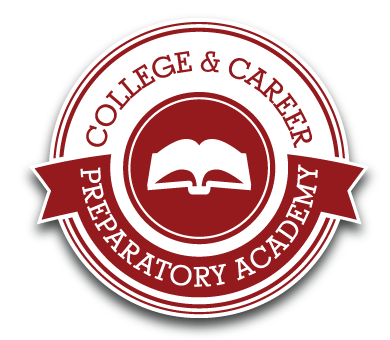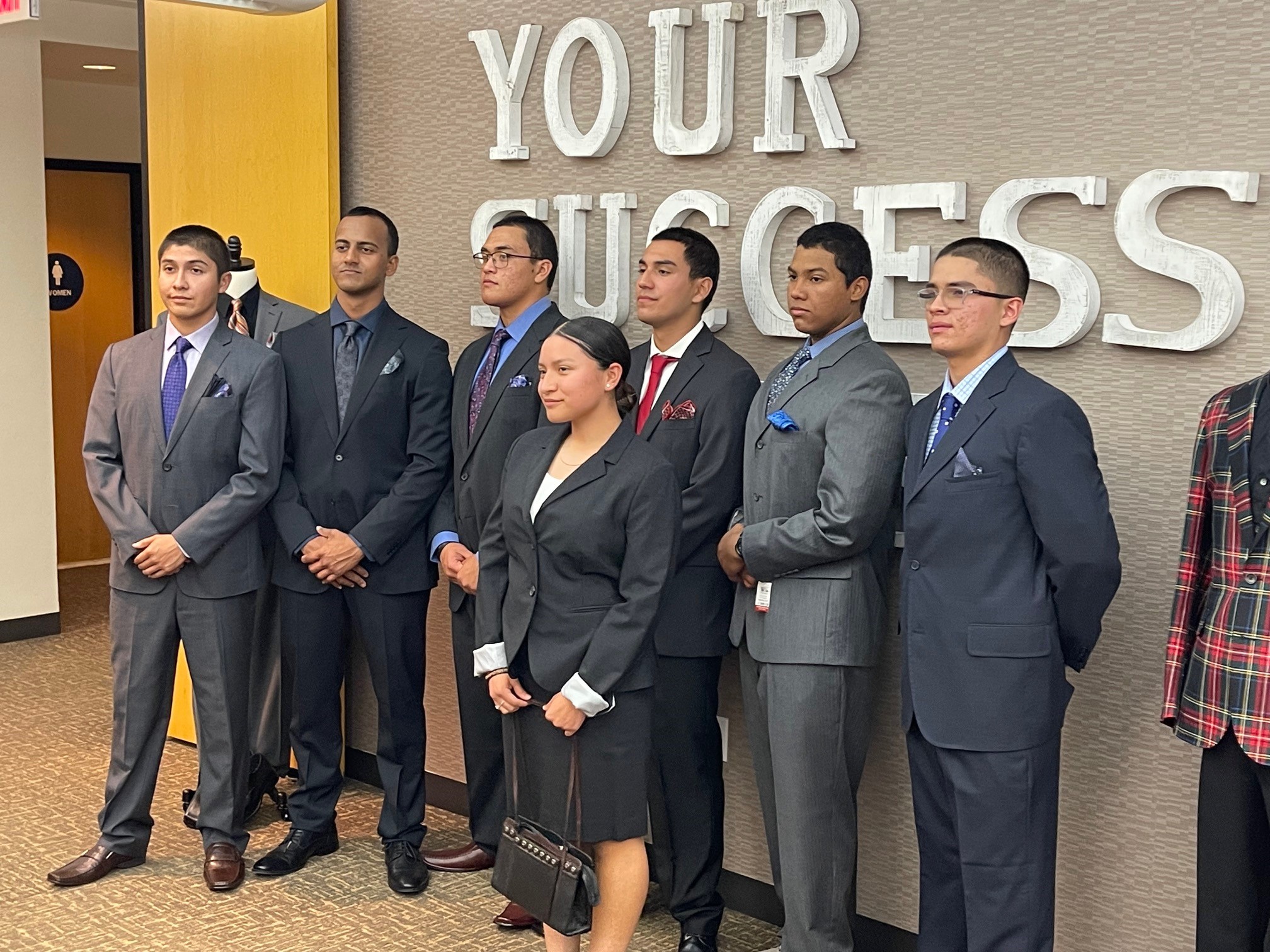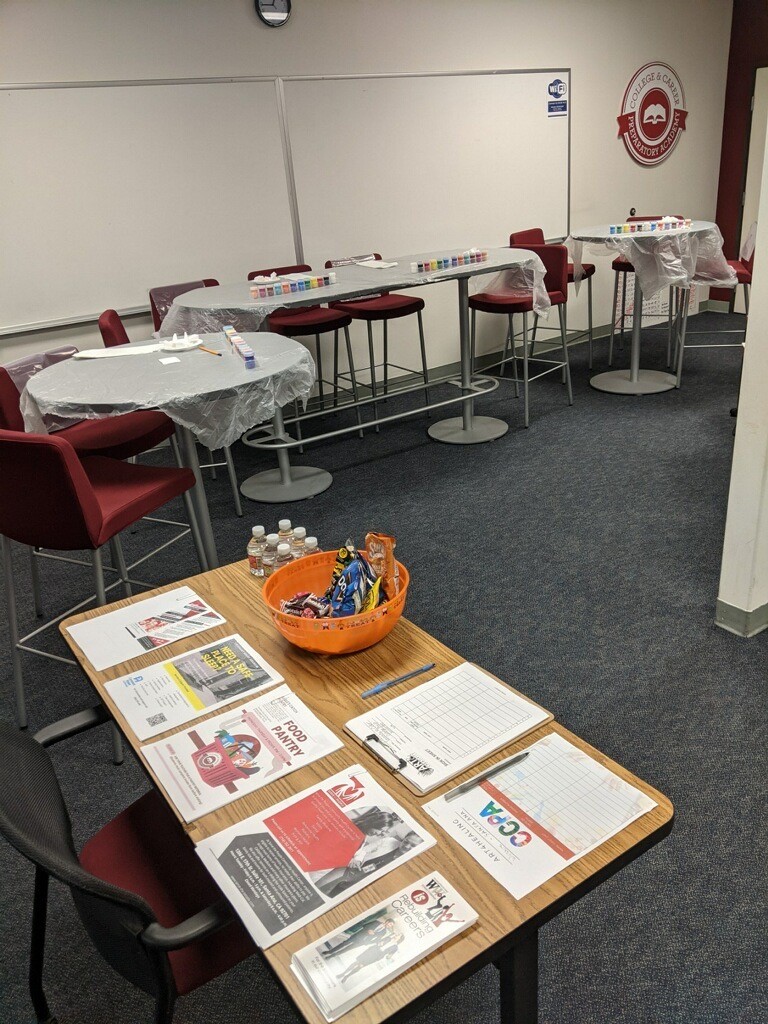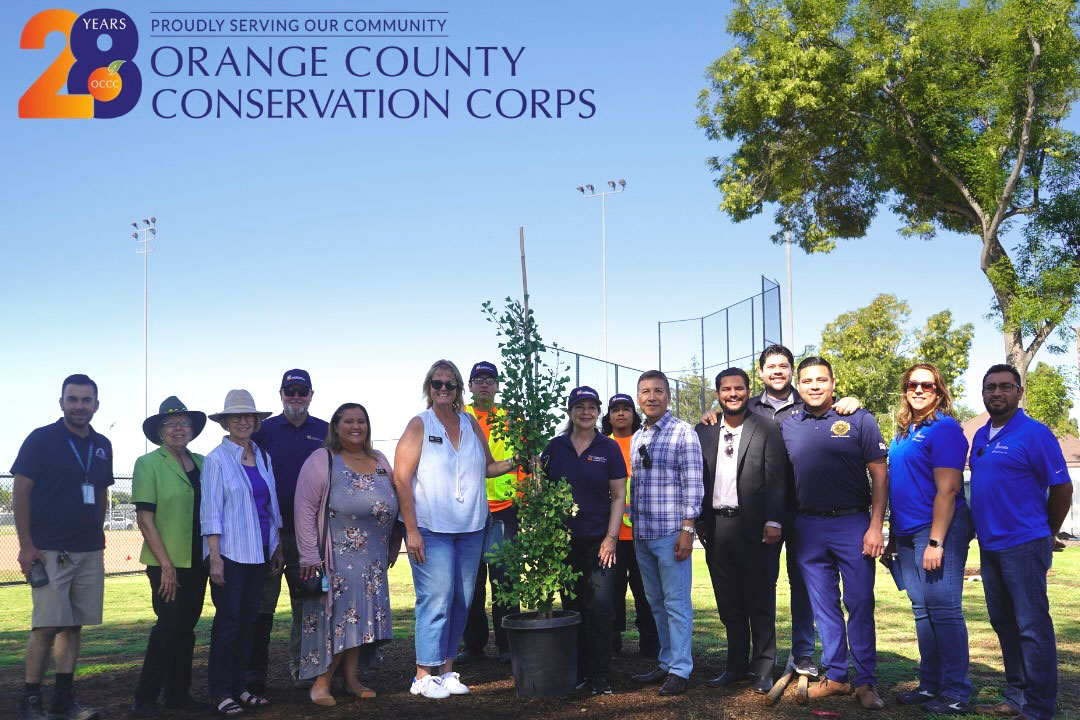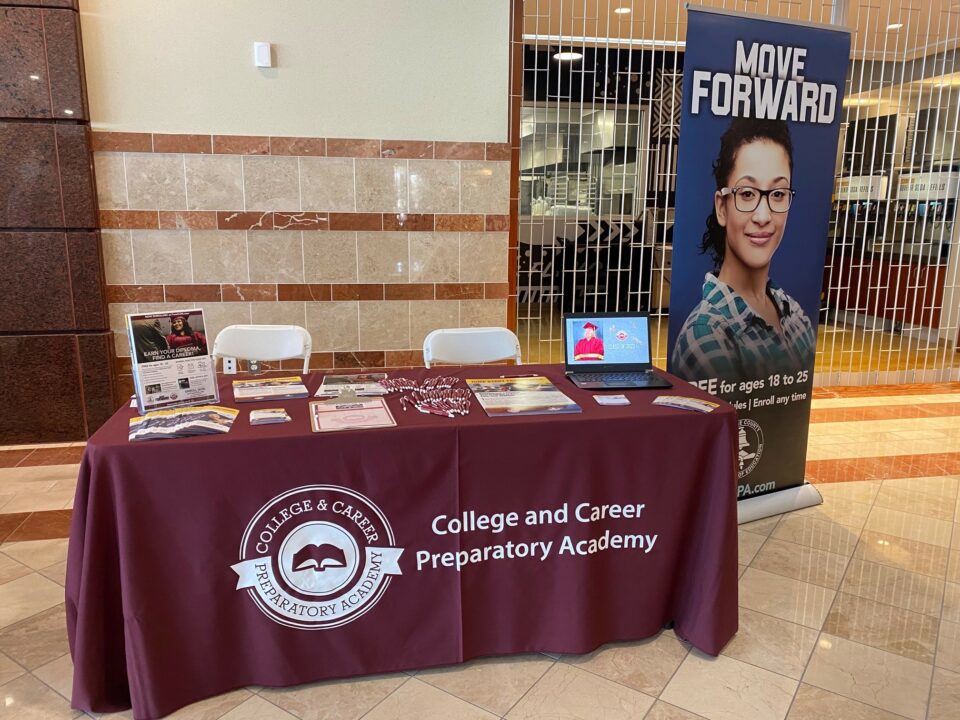OCDE’s College and Career Preparatory Academy, a charter school serving students ages 16 to 25, has introduced a new graduation pathway that makes earning a high school diploma even more manageable for adult learners.
The option, approved unanimously by the Orange County Board of Education in June, reduces the credit requirement for students 19 and older from 220 to 155 while preserving all core academic courses.
CCPA leaders say the change provides a rigorous yet practical route for learners who are often balancing jobs, parenting and other responsibilities outside of school. It also keeps the academy competitive with other schools for adults.
“Our adult learners are very different from our 16- to 18-year-old students,” CCPA Principal Fatinah Judeh said. “They’re working, they’re parenting, they’re contributing to their communities. This pathway acknowledges those realities while ensuring that academic rigor remains intact.”
Recognizing lived experience
Previously, all CCPA students were required to complete 220 credits, including 75 in elective courses. The new pathway keeps English, math, science and social studies requirements the same while reducing elective credits to 10, Judeh said.
The 220-credit pathway remains in place for students ages 16 to 18, while the new 155-credit option is available only to those 19 and older.
Judeh explained that many adult learners are already demonstrating the skills that electives are designed to foster — through employment, community involvement and parenting. By adjusting the elective requirement, she said, CCPA can re-engage more students who might otherwise see graduation as too steep a hill to climb.
“This is about continuous improvement,” Judeh said. “We want to remove barriers, align with proven models and keep our program competitive while holding firmly to the mission and vision of CCPA.”
Early impact
College and Career Preparatory Academy is a free public charter school authorized in 2015 to offer flexible independent study options for students ages 16 to 25. Administered by OCDE, the program was created to serve young adults seeking a diploma, offering personalized support to help them complete high school and move on to college, career training or the workforce.
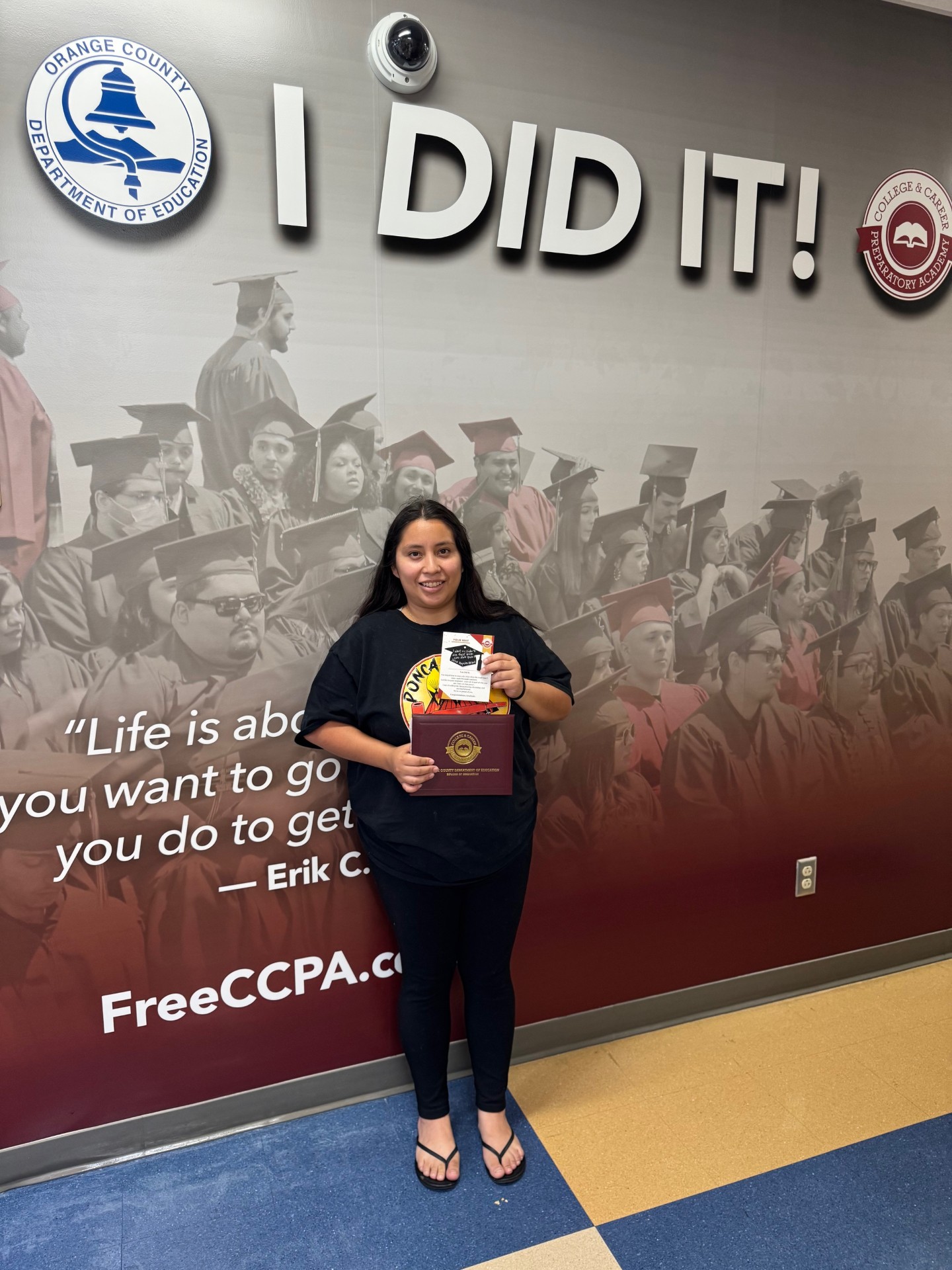
Already, the new pathway appears to be showing results. As of September, CCPA has celebrated 17 graduates — more than double the number at the same point last year. With momentum building, leaders say they are on track to surpass previous totals by the time the Class of 2026 graduates next June.
Counselor Megan Craig, who helped design the pathway, works closely with students to keep them focused on their goals. She asks each learner, “What’s your why?” — encouraging them to identify the personal motivation driving them to finish school.
When graduation day arrives, she returns those reflections to students as a reminder of the purpose that carried them across the finish line.
Voices from CCPA
Teachers and students spoke out in support of the new pathway during the county board’s May 7 meeting.
CCPA teacher Christine Hall said she has students who work graveyard shifts, care for ailing parents, look after autistic siblings and juggle two jobs.
“They have dreams, they have aspirations,” she said, “but they have a lot of obstacles, and getting 155 credits for graduation would help them out.”
Student Alexis Olden offered a personal perspective as a 24-year-old mother returning to finish her diploma. When she re-enrolled, she said, she didn’t have many academic credits left, and once she completed those, the only requirement standing in her way was electives.
“Credits didn’t reflect whether I was ready to graduate or not, just whether I had enough hours attending at the school,” she said. “That’s why I believe reducing it to 155 credits rather than 220 credits would be very beneficial. It gives students like me who have worked so hard to overcome so much a chance to finish and get started in the next chapter.”
A second chance
Orange County Board of Education trustees similarly praised the new pathway during their June 2 vote, noting its potential to help adults reclaim futures once thought out of reach.
Dr. Ken Williams, serving as board president, said the change provides “a second chance to graduate and get that high school diploma so they can move on with their careers.” He noted that it also lays the groundwork for potential career-training partnerships in high-demand fields like health care.
“I think this is absolutely brilliant,” added trustee Mari Barke. “I’m excited for all the adult learners, and you guys have such an amazing program.”
Judeh, the principal, said the new pathway represents a natural extension of the school’s mission to re-engage students and prepare them for success in life.
“Every diploma represents a life changed and a future reclaimed,” she said. “This pathway ensures that more of our students will have the chance to reach that milestone and inspire the next generation.”
The new pathway builds on a milestone year for CCPA. In June, the academy marked its 10th graduating class as 127 students accepted their diplomas at Orange Coast College. Watch highlights from that celebration below.
